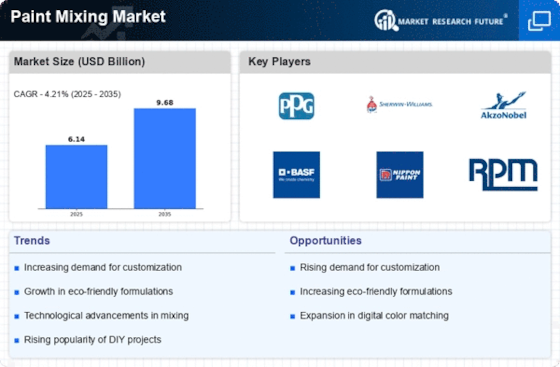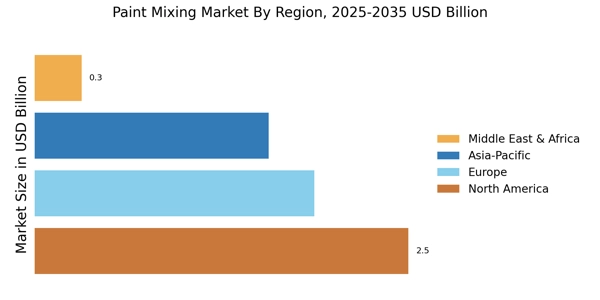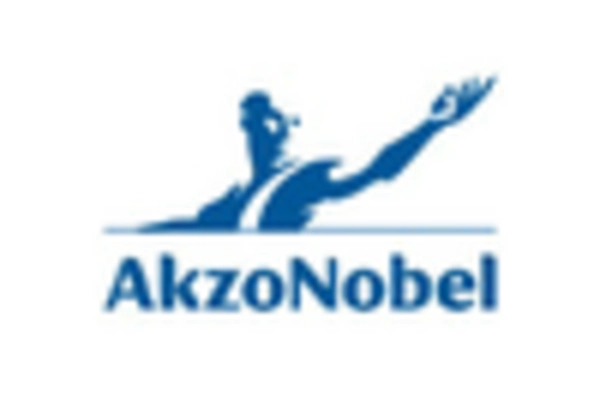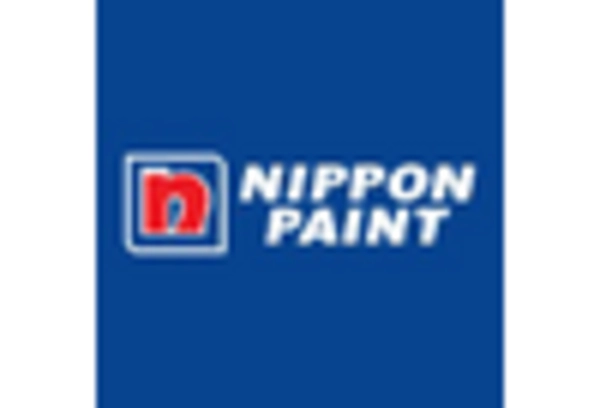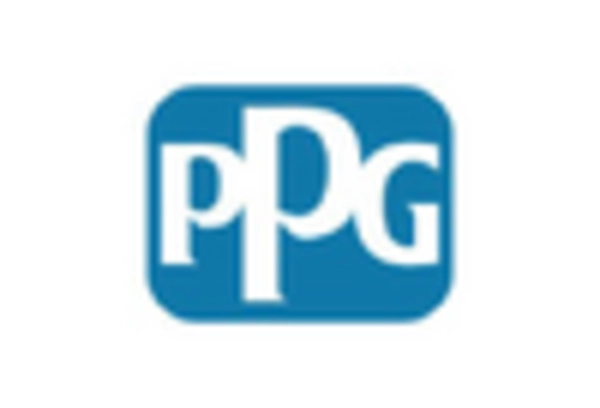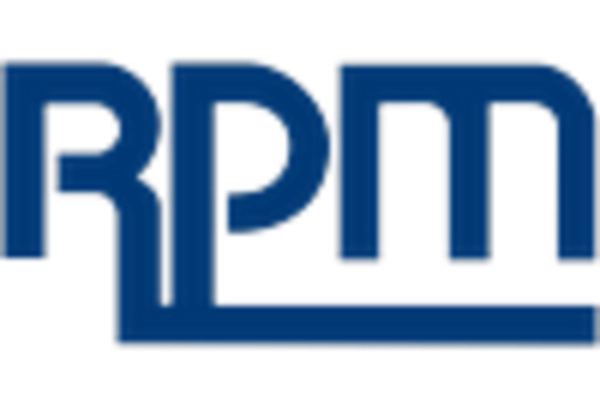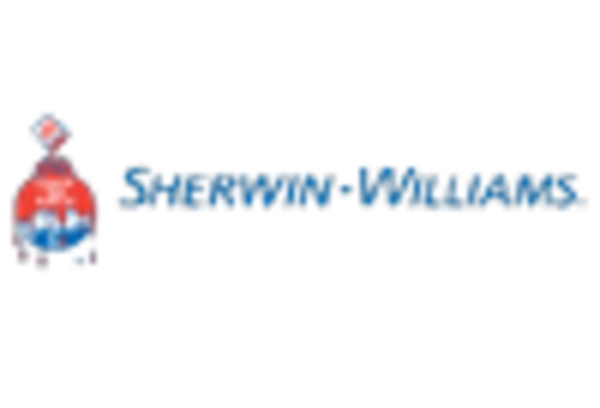Increased DIY Culture
The Paint Mixing Market is witnessing a notable shift towards a do-it-yourself (DIY) culture, which is reshaping consumer behavior. As individuals increasingly engage in home improvement projects, the demand for paint mixing solutions rises. This trend is particularly evident among millennials and Gen Z consumers, who prioritize personalization and creativity in their living spaces. According to recent surveys, nearly 60% of homeowners are inclined to undertake DIY projects, which often require tailored paint solutions. This inclination towards DIY not only boosts the sales of paint mixing products but also encourages manufacturers to innovate and offer user-friendly mixing systems. As a result, the Paint Mixing Market is likely to expand, catering to the evolving preferences of a more hands-on consumer base.
Rising Construction Activities
The Paint Mixing Market is experiencing a surge in demand due to increasing construction activities across various sectors. As urbanization accelerates, the need for residential, commercial, and industrial buildings rises, leading to a heightened requirement for paints and coatings. In 2025, the construction sector is projected to grow at a rate of approximately 5.5% annually, which directly influences the paint mixing segment. This growth is driven by the need for aesthetic appeal and protective coatings in new structures. Furthermore, renovation projects are also contributing to this demand, as homeowners seek to refresh their living spaces. Consequently, the Paint Mixing Market is poised to benefit from this construction boom, as customized paint solutions become essential for meeting diverse consumer preferences.
Technological Advancements in Paint Mixing
Technological advancements are playing a pivotal role in shaping the Paint Mixing Market. Innovations in mixing equipment and software solutions are enhancing the efficiency and accuracy of paint mixing processes. For instance, automated mixing systems are being developed to ensure consistent color matching and reduce waste. Additionally, the integration of artificial intelligence in color formulation is enabling manufacturers to create customized solutions that meet specific consumer demands. As these technologies become more accessible, they are likely to drive growth in the Paint Mixing Market. The adoption of smart mixing solutions is expected to increase by approximately 20% over the next five years, reflecting a shift towards more sophisticated and efficient paint mixing practices.
Growth in Automotive and Industrial Sectors
The Paint Mixing Market is benefiting from the growth in the automotive and industrial sectors, which require specialized coatings and finishes. As the automotive industry continues to expand, the demand for high-quality paint solutions that offer durability and aesthetic appeal increases. In 2025, the automotive paint market is projected to grow at a rate of 4% annually, which directly impacts the paint mixing segment. Additionally, the industrial sector's need for protective coatings in machinery and equipment further drives demand. Manufacturers are increasingly focusing on developing customized paint solutions that meet the specific requirements of these sectors. As a result, the Paint Mixing Market is likely to see sustained growth, driven by the evolving needs of the automotive and industrial markets.
Environmental Regulations and Sustainability
The Paint Mixing Market is increasingly influenced by stringent environmental regulations and a growing emphasis on sustainability. As consumers become more environmentally conscious, there is a rising demand for eco-friendly paint products. Manufacturers are responding by developing low-VOC and water-based paints that align with regulatory standards. This shift not only addresses environmental concerns but also opens new market opportunities for paint mixing solutions that cater to sustainable practices. In 2025, it is estimated that the market for eco-friendly paints will account for over 30% of total paint sales, further driving the need for innovative mixing solutions. Consequently, the Paint Mixing Market is likely to evolve, focusing on sustainable practices that appeal to a more environmentally aware consumer base.


